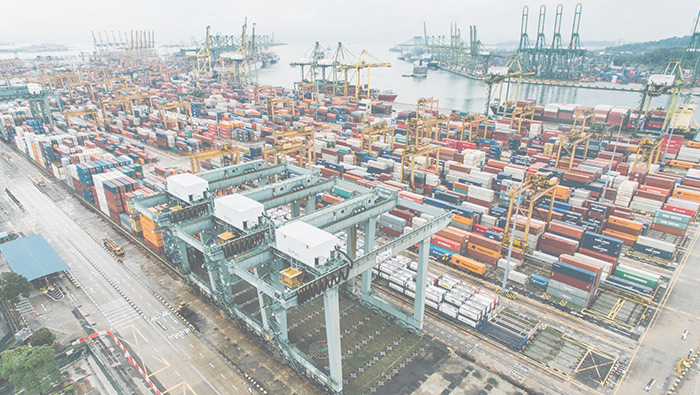By Maged Sharaf, Ph.D.
The year 2018 witnessed the 100th anniversary of the influenza H1N1 pandemic, sometimes referred to as the 1918 Spanish Flu. Despite being coined the Spanish Flu, its origins are unknown. That pandemic, which killed an estimated 50 million worldwide and 675,000 in the United States, is the most devastating pandemic in modern history. The Spanish Flu dwarfed the number of those killed during World War I (40 million) and equaled the number of casualties of World War II (about 50 to 60 million), the deadliest global war in history. Crowded conditions and the movement of troops during WWI likely contributed to the global spread of the 1918 virus. And since 1918, the world has experienced three additional pandemics, in 1957, 1968, 2009, and of course, we are in the midst of another global pandemic today.
The 2019 novel coronavirus (COVID-19), originating in Wuhan, China, was first officially reported on December 31, 2019, yet it is believed that the first case of COVID-19 dates to mid-November 2019. As of April 13, 2020, COVID-19 cases have been reported on every continent except Antarctica, and even among isolated tribes in the Amazon. Current COVID-19 statistics (here), as of this writing, include 1,904,566 cases and 118,459 deaths worldwide, and 572,169 cases and 23,070 deaths in the USA. In a mere three and a half months, the virus had spread throughout the entire world, a blatant representation of the power of globalization in turning the world into a small village.
This globalization is reflected in almost all industries, and the dietary supplement industry is no exception.
Unprecedented government actions taken to combat COVID-19 have caused widespread economic disruptions. Examples include the USA’s restriction of entry into the country from China, which has perturbed industries that depend on the flow of goods and people between the world’s two largest economies. The economic disruptions were further complicated by the temporary ban of travelers from Europe.
Many dietary supplement manufacturers import their ingredients from countries impacted by this pandemic, such as India, China and others and are likely seeing the effect of the current economic disruptions on their production schedules. The impact is probably hardest on those manufacturers that had not stocked up on dietary ingredients and other materials before trade was disrupted.
New suppliers may need to be identified, and those suppliers need to be qualified under the regulations of the Food Safety Modernization Act’s Foreign Supplier Verification Program (FSVP). It is the responsibility of dietary supplement manufacturers to ensure that their products contain the claimed ingredients and are absent of contaminants. Travel restrictions can make this a challenge and it is important for supplement firms to have robust alternative plans in place that ensure the continued safety of their products for the consumer.
The lesson to learn from the current situation is the importance of diversification of sources of materials used in production and the ability to identify and qualify backup sources when needed.
Another area of concern to responsible members of the dietary supplement industry and its trade associations is those fly-by-night intruders who are offering fraudulent products with claims to prevent, treat, mitigate, diagnose or cure COVID-19. The Federal Trade Commission (FTC) and the U.S. Food and Drug Administration (FDA) are actively sending warning letters to companies selling unapproved products that violate federal law by making deceptive or scientifically unsupported claims that products can treat or prevent COVID-19. The letters advise recipients to immediately cease making all such claims. FTC Chairman Joe Simons said, “there already is a high level of anxiety over the potential spread of coronavirus. What we don’t need in this situation are companies preying on consumers by promoting products with fraudulent prevention and treatment claims. These warning letters are just the first step.” The FDA Commissioner Stephen M. Hahn, MD, noted “we understand consumers are concerned about the spread of COVID-19 and urge them to talk to their health care providers, as well as follow advice from other federal agencies about how to prevent the spread of this illness. We will continue to aggressively pursue those that place the public health at risk and hold bad actors accountable.”
It very important for labelers and manufacturers to review claims statements, not only that are part of their labels and marketing materials but also statements made on social media. Companies are equally responsible for the accuracy and legality of their own statements as well as those of others about their products and must take swift action to correct inaccurate and/or misleading statements.
COVID-19 and our highly globalized world has taught the dietary supplement industry that it must always prepare for worst-case scenarios, plan for alternate ways of doing business, secure alternate sourcing options and ensure products are manufactured in accordance with Good Manufacturing Practices and labeled in accordance with FDA guidelines. Solid practices such as these will ensure that safe and acceptable products will be available all the time, including during a crisis.
Posted in Dietary Supplements, Issue of the Month and tagged Maged Sharaf.

